Archives
-
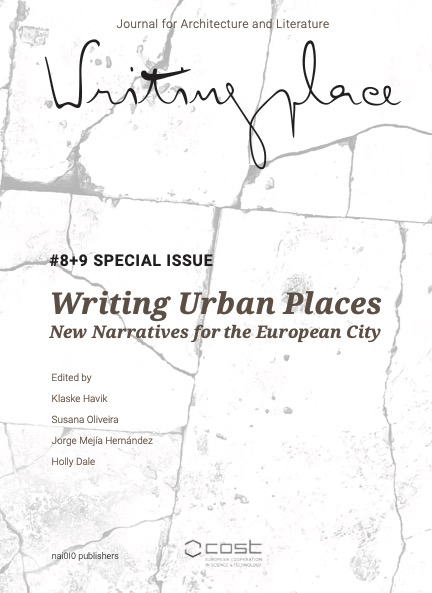
Writing Urban Places: New Narratives for the European City
No. 8-9 (2023)The special issue Writing Urban Places: New Narratives for the European City, marks the culmination of an international research network that delved into the intricate interplay between communities, urban spaces and narratives. At its core, this endeavour introduced an inventive approach aimed at deepening our comprehension of urban communities, their dynamics and their rootedness, all through the lens of narrative methodologies. This collection gives an account of the dynamics of this network of academics, which consists of over 175 individuals from 35 different European countries and a variety of disciplinary backgrounds. As such, the issue offers a conclusion to the Writing Urban Places COST Action while also, hopefully, providing a springboard for further reflections and discussions on urban narratives, and the role these could play in spatial developments in the European city.
-
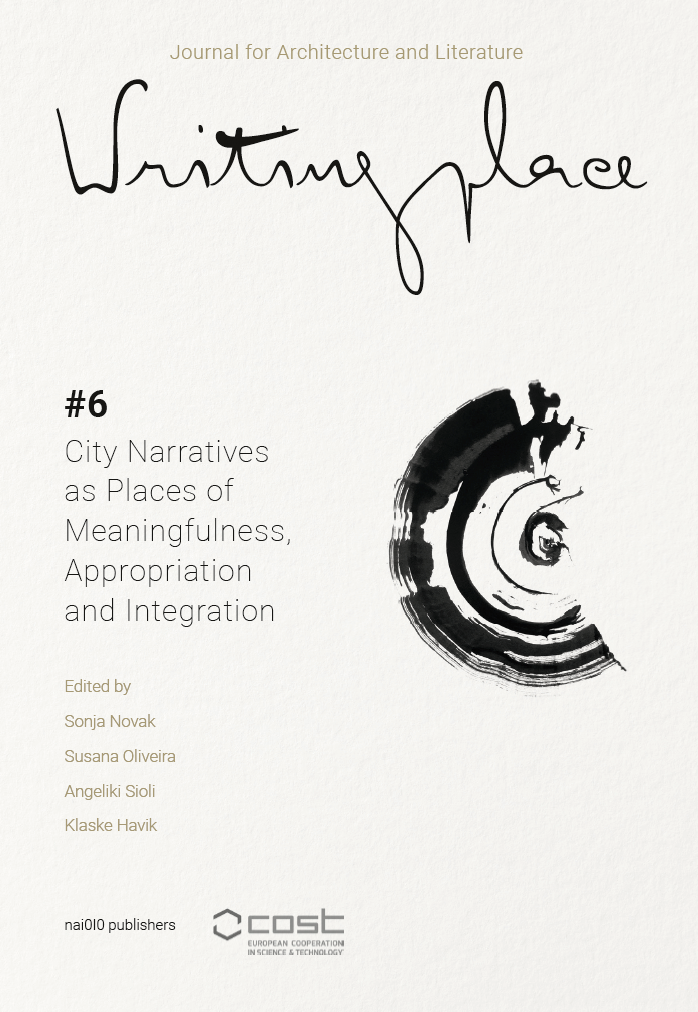
City Narratives as Places of Meaningfulness, Appropriation and Integration
No. 6 (2022)The sixth issue is an invitation to look beyond the definitions of meaningfulness, appropriation and integration, and explore the relations between them. We have liberally arranged the articles under the three main themes but, as it can easily become clear, there are overlaps among the themes. In that way, this issue offers not only a geographical journey along different urban narratives, but also an expedition into the network of interrelated terms and spatial practices.
Edited by Sonja Novak, Angeliki Sioli, Susana Oliveira and Klaske Havik
-
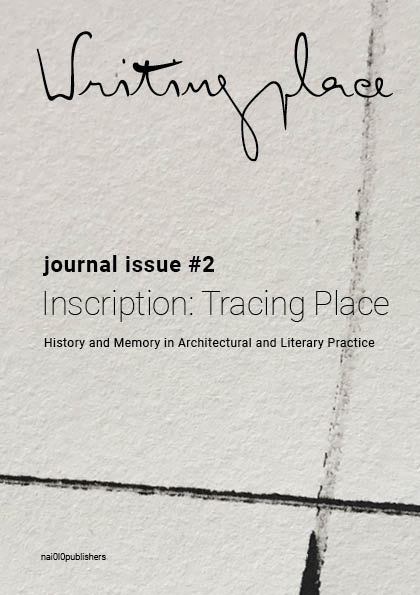
Inscriptions: Tracing Place. History and Memory in Architectural en Literary Practice
No. 2 (2018)The journal issue Inscription: Tracing Place focuses on the role of history and memory in literary and architectural practice. It brings forward accounts of architectural investigations and architectural designs that deal with the evocation of the memory of place, either in site-analysis or in design.
Edited by Klaske Havik, Susana Oliveira, Jacob Voorthuis and Noortje Weenink
-
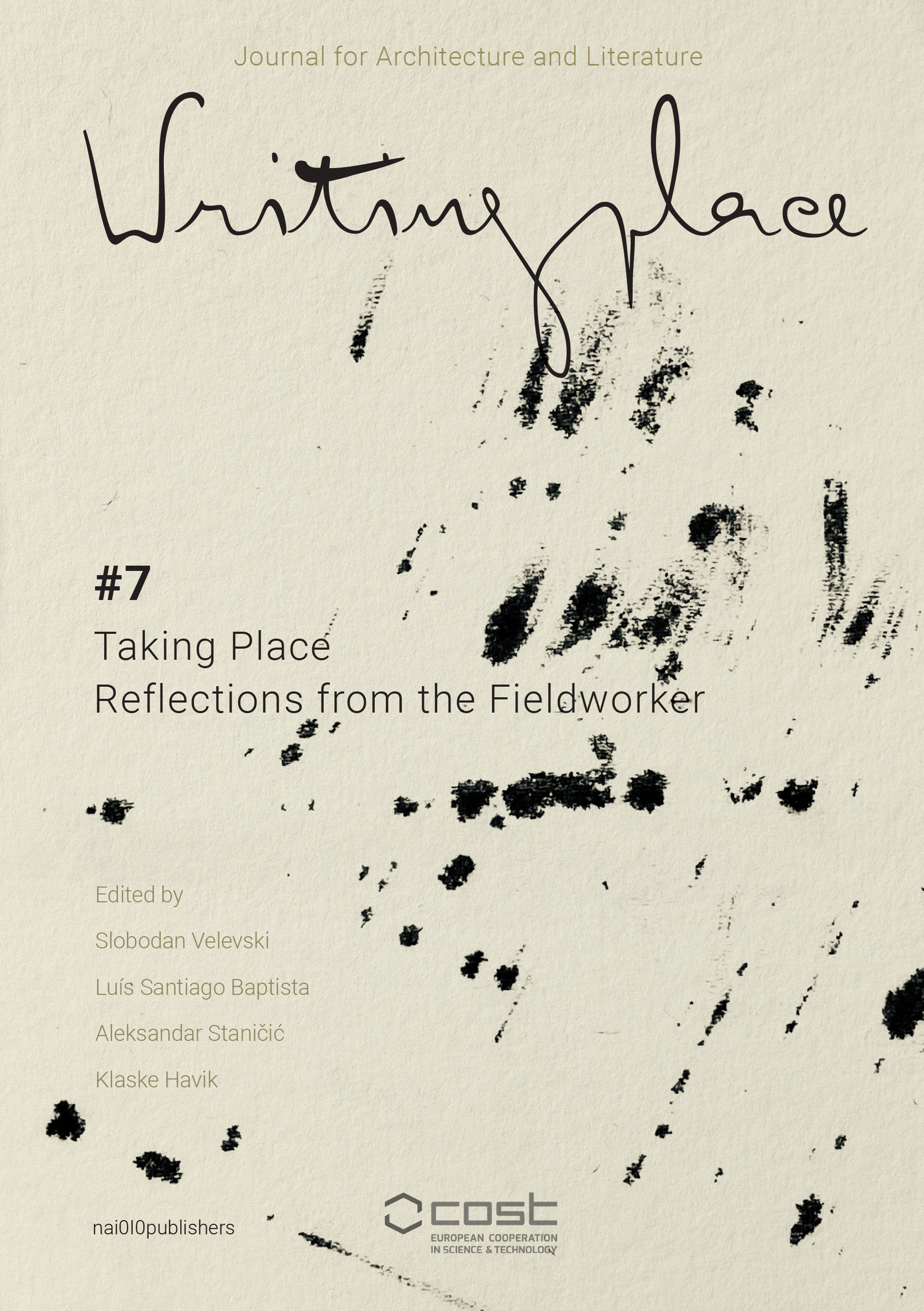
Taking Place: Reflections from the Fieldworker
No. 7 (2023)This issue of Writingplace Journal moves into the field, exploring the moment when reflection turns into action, and questions how knowledge produced via research is appraised and applied on the ground. In the articles, authors reflect upon their concrete experiences where insights regarding the city and its narratives have been made operational. Understanding the urban as a complex expression of social, historical, material, spatial and temporal relations between people and their built environment, we argue that this comprehension of places demands and envisions action, by which active and transformative processes take place in the real world. Fieldwork is in this sense both research and event, both investigative process and performative project.
-
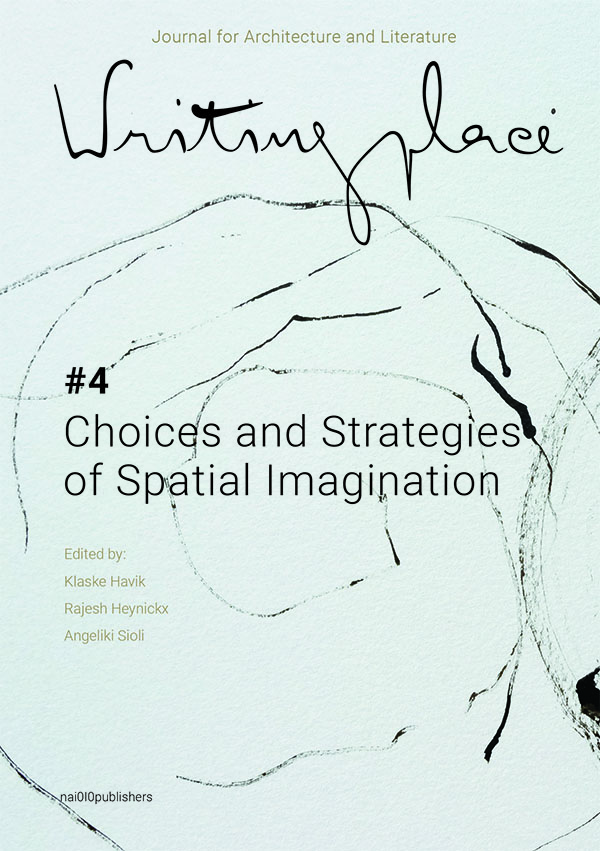
Choices and Strategies of Spatial Imagination
No. 4 (2020)Architecture is by definition an act of spatial imagination, this wondrous capacity to envision possible futures for the built environment. Spatial imagination is essential in order to visualize new constructions taking shape, evolving in time, and partaking of the cultural expression of a place or era. It takes spatial imagination to foresee how architecture can meaningfully contribute to people’s lives, providing a sense of belonging, space for their needs and dreams. Nonetheless, spatial imagination is oftentimes hard to trigger or difficult to control. Imaginative ideas often emerge unexpectedly, when seemingly unconnected or contradictory words, images and thoughts are brought together. With spatial imagination being an intrinsic aspect of architecture and design, but also deeply embedded in fields like literature or the arts, this fourth issue of Writingplace focuses on concepts, elements and theoretical foundations from different strands of knowledge that can propel choices and strategies of spatial imagination.
Edited by Klaske Havik, Rajesh Heynickx, Angeliki Sioli
-
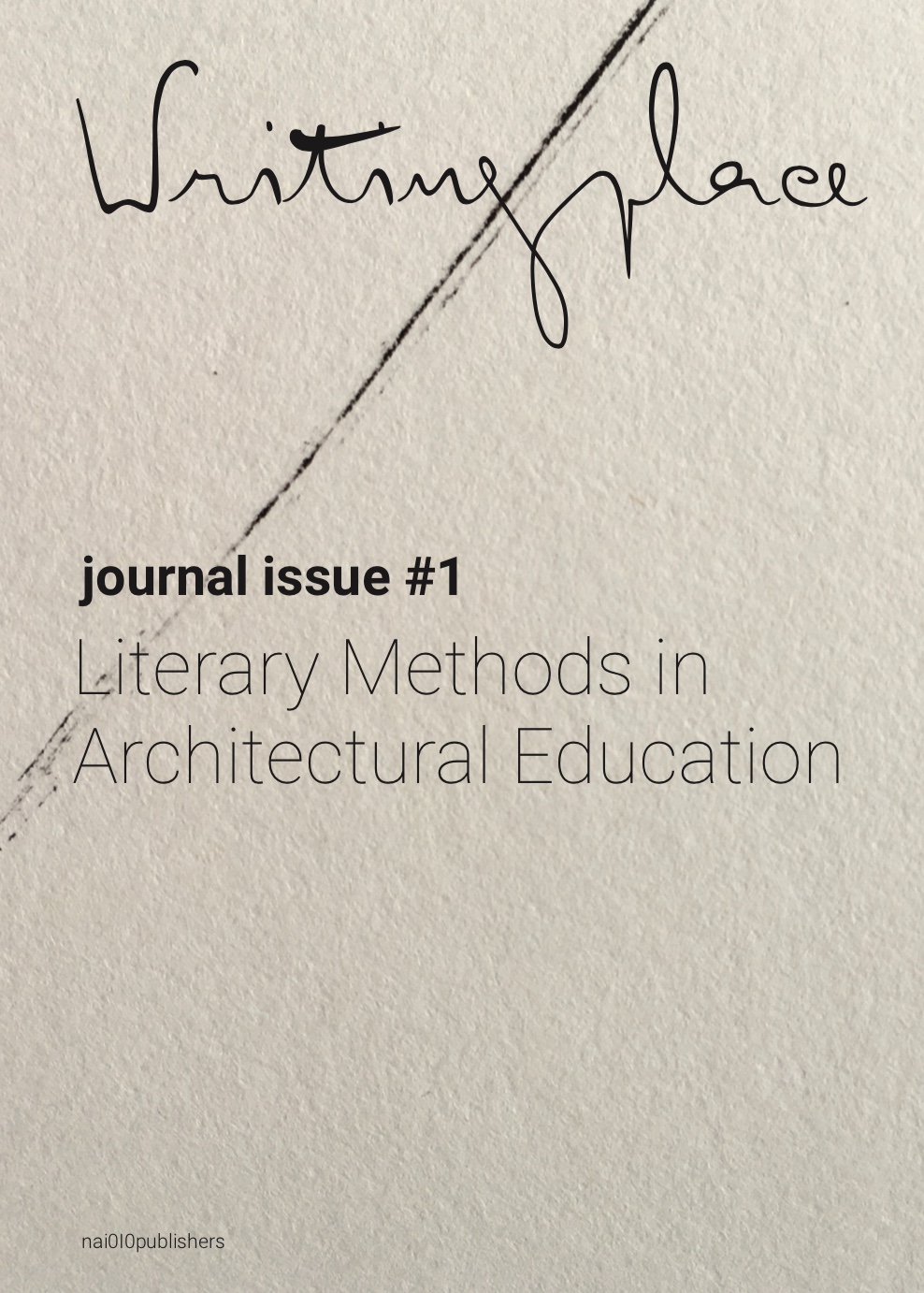
Literary Methods in Architectural Education
No. 1 (2018)Issue editors
Klaske Havik
Mark Proosten
Davide Perottoni -
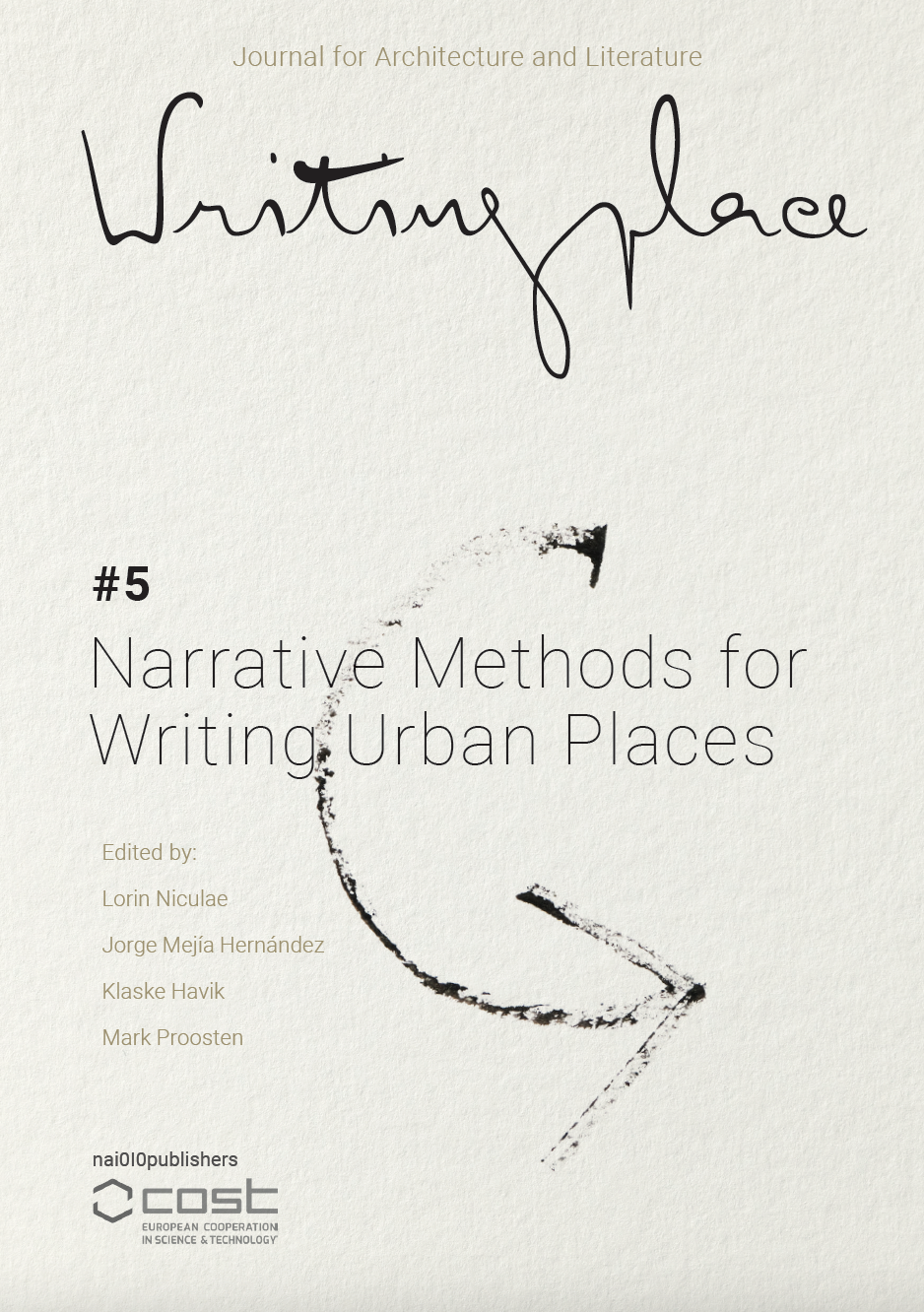
Narrative Methods for Writing Urban Places
No. 5 (2021)This fifth issue of the Writingplace Journal examines different narrative methods, understood as procedures, techniques or ways of relating or recounting events, and how they can be used to appraise and imagine the city. The editorial process of the issue has been developed within the context of the EU-funded COST Action ‘Writing Urban Places’,1 a multidisciplinary network of researchers who are interested in developing new narratives for the European city. By recognizing the value of urban narratives – stories rich in information regarding citizens’ sociospatial practices, perceptions, hopes and ambitions – the network seeks to foster and preserve the democratic, and therefore inclusive, nature of the modern European city.
Edited by Lorin Niculae, Jorge Mejía Hernández, Klaske Havik, Mark Proosten
-
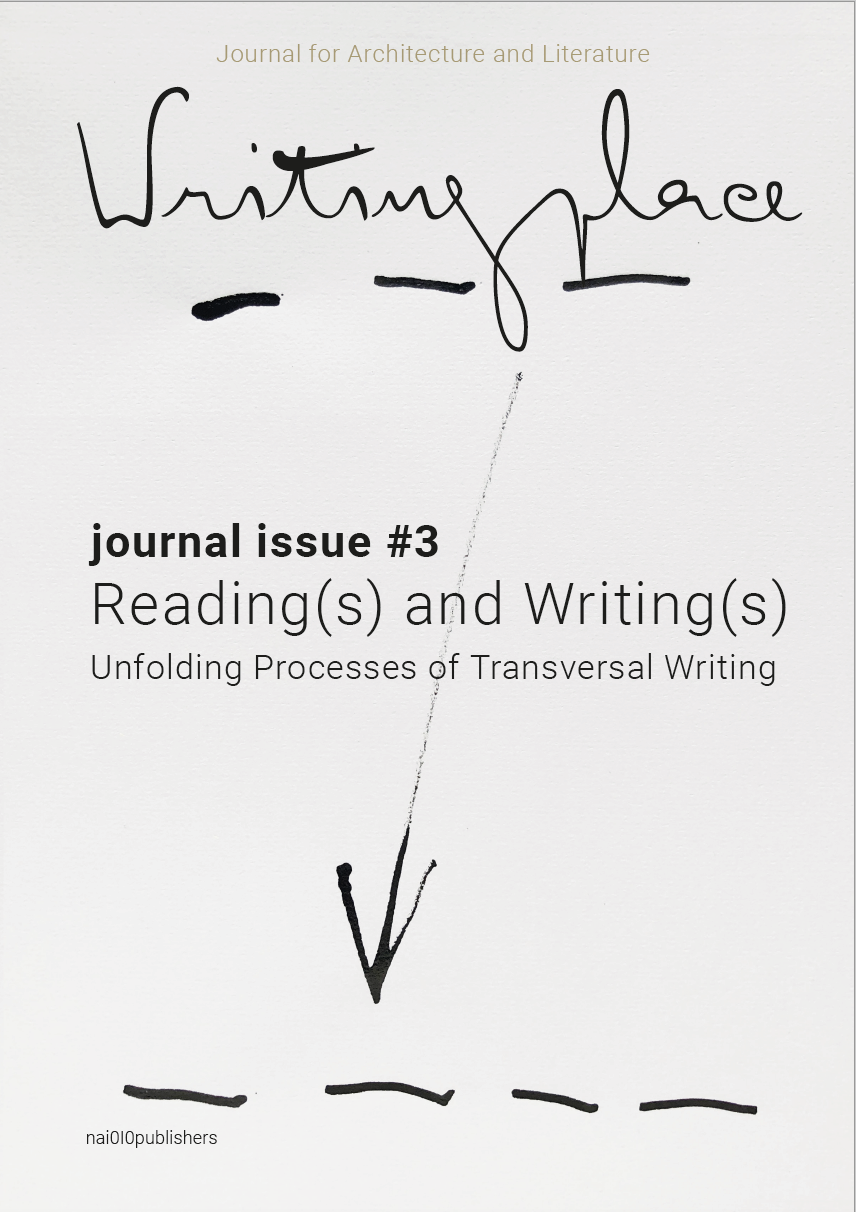
Reading(s) and Writing(s). Unfolding Processes of Transversal Writing
No. 3 (2019)This issue of Writingplace Journal, Reading(s) and Writing(s), focuses on the complex process of writing itself, and in particular on the question of reading and responding to texts. By presenting not only resulting texts, but discreet readings of works in process integrated with the discussions that unfold, the issue reveals complex modes of writing that move between the scholarly and the fictional.
Edited by Catharina Gabrielsson, Hélène Frichot, Klaske Havik, Marko Jobst

